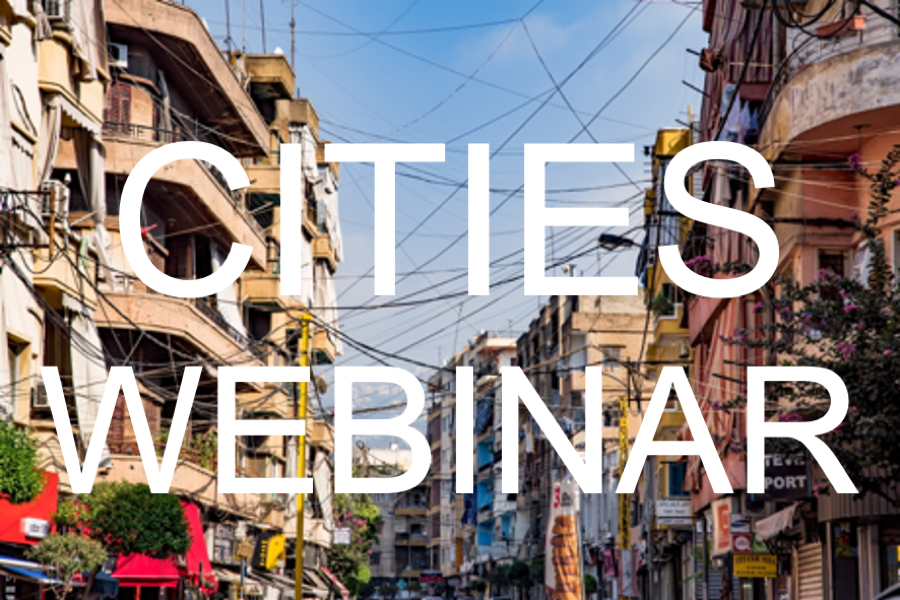
Maria Kaika, Roger Keil, Tait Mandler, Yannis Tzaninis, Presentation of the book “Turning up the heat: Urban political ecology for a climate emergency”, 14.09.2023, 5:30pm-7:00pm CEST
30 August 2023
George C.S. Lin, “Muddling on Pathways of Urban Redevelopment: Same Rhyme, Different Tones, and Diverse Trajectories of Chinese Urbanism”, 05.10.2023, 5:00pm-7:00pm CEST
22 September 2023MONA HARB, URBAN GOVERNANCE IN DYSFUNCTIONAL STATES: CITY-MAKING BY THE « REPUBLIC OF NGOS » IN POST-BLAST BEIRUT, 21.09.2023, 5:15 PM-7 PM
Seminar Cities are back in town WIP
(Work In Process)
Urban Governance in Dysfunctional States:
City-Making by the “Republic of NGOs” in Post-Blast Beirut
Thursday 21 September 2023
5:15 – 7 pm CEST (in-person)
Sciences Po, Room J208
1 3 Rue de l’Université, 75007 Paris
This talk explores urban governance and city-making in the context of dysfunctional states, taking as its case-study one of the latest disasters in the Lebanese capital—the explosion of the Port of Beirut on August 4, 2020.
Based on participant observation, interviews, and a survey with more than 100 actors, we map the post-blast response at the national and international level underscoring the ineffectiveness of the aid industry and the dysfunctionality of state actors (Harb et al., forthcoming). We then investigate how actors on the ground effectively managed the repairs of more than half of the homes and businesses in the neighborhoods affected by the Port blast, notwithstanding grave shortcomings (BUL 2023). Such actors include national and international Non-Governmental Organizations (NGOs) and Faith-Based Organizations (FBOs), as well as political groups, religious foundations, university-based groups, professional organizations, and collectives. Dozens of them received funding from the Lebanese diaspora. We identify six clusters of actors that form two more-or-less consolidated networks. One is a tighter network, centered on newer and smaller national NGOs that are well-connected to international NGOs and FBOs, as well as to professional groups. The other is a more atomized network, made of older and bigger actors, mostly national FBOs and political-sectarian foundations. The talk proceeds to examining the variations of actors with regard to the provision of goods and services. We find that while most converged on the delivery of particularistic goods—such as food packages, cash support and small physical repairs, the network of national NGOs stands out in the investments they made in the provision of collective goods—namely the restoration of heritage buildings and the rehabilitation of open spaces, parks and community facilities. We argue that these interventions produced increments of relatively equitable city-making practices, despite many policy odds. We conclude by reflecting on the productive, yet contingent, role of NGOs and FBOs in advancing what Lipietz and Bhan have framed as “practices of commoning” (2022), amidst the gloomy context of urban governance in dysfunctional states.
Speaker
Mona Harb is tenured professor of urban studies and politics at the American University of Beirut where she is also co-founder and research lead at the award-winning Beirut Urban Lab. Her researchinvestigates how ideas and practices of commoning are produced, contested and/or captured by urban actors and governance processes in contexts of disasters.
She has published and co-edited several books, and more than one hundred journal articles, book chapters, and other publications. Her books include: Le Hezbollah à Beirut: de la banlieue à la ville, Leisurely Islam: Negotiating Geography and Morality in Shi’i South Beirut (co-authored with Lara Deeb), Local Governments and Public Goods: Assessing Decentralization in the Arab World (co-edited with Sami Atallah), Refugees as City-Makers (co-edited with Mona Fawaz et al.).
Harb is the recipient of grants from the IDRC, Open Society Foundation, Ford Foundation, LSE-Emirates Fund, EU-FP7, Wenner-Gren, ACLS, and the Middle-East Awards. She serves on the editorial boards of IJURR, IJMES, Environment and Planning C and CSSAME.
Currently, she is the coordinator of the AUB graduate programs in Urban Planning, Policy and Design, and was previously Associate Dean of her faculty, and Chairperson of the department of Architecture and Design. She provides professional advice on urban development issues for several international organizations (ESCWA, WB, EU, UNDP).

